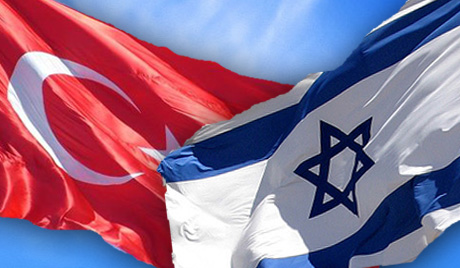
From Dan Williams, Reuters: Not only Syrian air defences worried Israel when its warplanes bombed a suspected Hezbollah-bound arms convoy near Damascus on Jan. 30. Also probing the skies were the potent radars of an unfriendly NATO member close by: Turkey.
That helped persuade Israel to end its almost three-year rift with Ankara in a U.S.-brokered reconciliation on March 22.
A continued diplomatic freeze might have been tolerable, Israeli officials said, but not the possibility of inadvertently trading fire with Turkey should the Syria crisis trigger major military intervention. . . .
The Israeli air force has said it is poised to strike Syrian sites at short notice. It has a record of besting Syria’s Russian-supplied anti-aircraft technology, but does not want to risk tripping over Turkey, whose military is on high alert after repeated border shellings and refugee influxes from Syria.
"If we send in the jets, and the Turks do too, a misunderstanding about who is doing what and where could be lethal," said an Israeli official involved in the deliberations that led Prime Minister Benjamin Netanyahu to mend fences and apologise over the killing by Israel’s navy of nine Turkish activists who tried to breach its Gaza blockade in May 2010.
"This deal removes much of that friction," the official said.
Israel and Turkey were once close defence partners whose forces regularly carried out joint sea and aerial maneoeuvres.
But since 2010, the Israelis say, their air force operations over Lebanon and Syria had met with aggressive gestures from Turkey – jets scrambled as if to intercept, or radar tracking which could in theory guide missiles against the Israeli planes.
Turkish officials declined to comment on those accounts.
Robert Hewson, an IHS Jane’s airpower analyst, said that for Turkey, accustomed to aerial brinkmanship against its regional rival Greece, "the Israelis became the new Greeks for a while. . . ."
"Israel will want to be sure it has deconflicted itself on the NATO side of the border – the Turkish side," he [Hewson] said. "If they can find a common cause over the Syrian issue, they will definitely be talking again – perhaps in a quiet phone call before any mission, to say ‘this or that is about to happen’." (graphic: Telegraph)
Image: telegraph%204%2017%2013%20Israel%20Turkey.jpg
